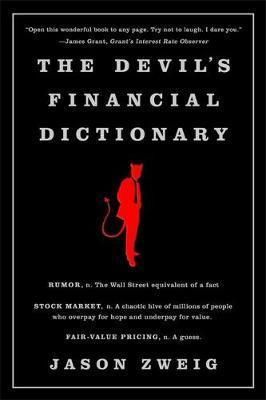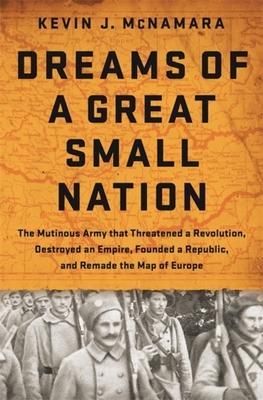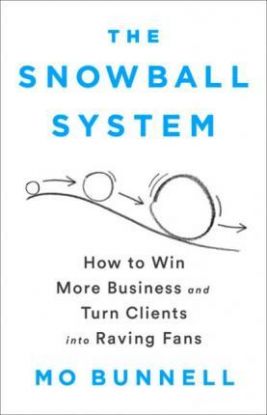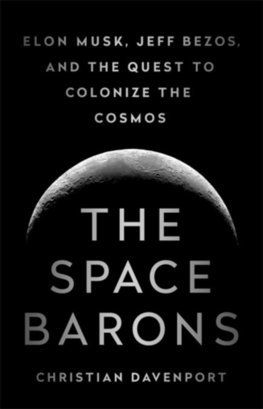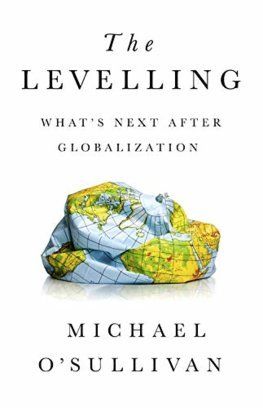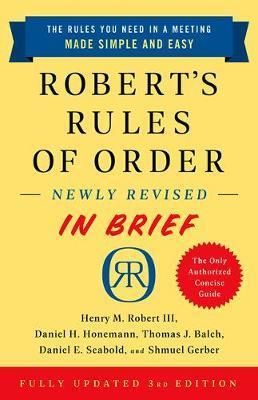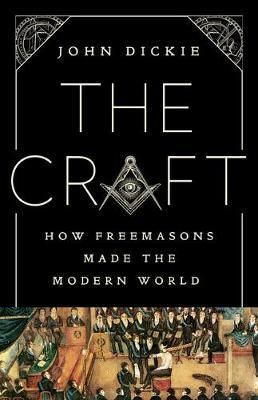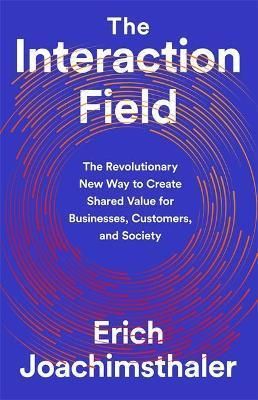PublicAffairs,U.S.
vydavateľstvo
The Devil's Financial Dictionary
The Devil's Financial Dictionary skewers the plutocrats and bureaucrats who gave us exploding mortgages, freakish risks, and banks too big to fail. And it distills the complexities, absurdities, and pomposities of Wall Street into plain truths and aphorisms anyone can understand. An indispensable survival guide to the hostile wilderness of today's financial markets, The Devil's Financial Dictionary delivers practical insights with a scorpion's sting. It cuts through the fads and fakery of Wall Street and clears a safe path for investors between euphoria and despair. Staying out of financial purgatory has never been this much fun. Definitions include: DAY-TRADER, n. See IDIOT. FEE, n. A tiny word with a teeny sound, which nevertheless is the single biggest determinant of success or failure for most investors. Those who keep fees as low as possible will, on average, earn the highest possible returns.
Vypredané
15,15 €
15,95 €
A World of Three Zeros
Muhammad Yunus, the Bangladeshi economist who invented microcredit, founded Grameen Bank, and earned a Nobel Prize for his work in alleviating poverty, is one of today's most trenchant social critics. In his latest book, he declares it's time to admit that the capitalist engine is broken--that in its current form it inevitably leads to rampant inequality, massive unemployment, and environmental destruction. To save humankind and the planet, we need a new economic system based on a more realistic vision of human nature--one that recognizes altruism and generosity as driving forces that are just as fundamental and powerful as self-interest.
Is this a pipe dream? Not at all. In the decade since Yunus first began to articulate his ideas for a new form of capitalism, thousands of companies, nonprofits, and individual entrepreneurs around the world have embraced them. From Albania to Colombia, India to Germany, France to Malaysia, Haiti to Cambodia, businesses and enterprises are being created that are committed to reducing poverty, improving health care and education, cleaning up pollution, and serving other urgent human needs in ingenious, innovative ways. In A World of Three Zeros, Yunus describes the new civilization that is emerging from the economic experiments his work has helped to inspire and offers a challenge to young people, business and political leaders, and ordinary citizens to embrace his mission to eradicate three unintended and pernicious aftereffects of unrestrained capitalism, and so improve the prospects for everyone.
Vypredané
28,45 €
29,95 €
Dreams of a Great Small Nation
The pages of history recall scarcely any parallel episode at once so romantic in character and so extensive in scale." ,Winston S. ChurchillIn 1917, two empires that had dominated much of Europe and Asia teetered on the edge of the abyss, exhausted by the ruinous cost in blood and treasure of the First World War. As Imperial Russia and Habsburg-ruled Austria-Hungary began to succumb, a small group of Czech and Slovak combat veterans stranded in Siberia saw an opportunity to realize their long-held dream of independence.While their plan was audacious and complex, and involved moving their 50,000-strong army by land and sea across three-quarters of the earth's expanse, their commitment to fight for the Allies on the Western Front riveted the attention of Allied London, Paris, and Washington.On their journey across Siberia, a brawl erupted at a remote Trans-Siberian rail station that sparked a wholesale rebellion.
The marauding Czecho-Slovak Legion seized control of the Trans-Siberian Railroad, and with it Siberia. In the end, this small band of POWs and deserters, whose strength was seen by Leon Trotsky as the chief threat to Soviet rule, helped destroy the Austro-Hungarian Empire and found Czecho-Slovakia.British prime minister David Lloyd George called their adventure one of the greatest epics of history," and former US president Teddy Roosevelt declared that their accomplishments were unparalleled, so far as I know, in ancient or modern warfare."
The Snowball System
This is a book for anyone who has to market their expertise, and there are more of us out there than you might think--lawyers, consultants, marketers, and accountants, but also photographers, Brazilian jiu-jitsu instructors, graphic designers, chiropractors, and book editors. If you're good at doing something, and if you need to connect with paying clients in order to keep doing it, this book will teach you how to sell yourself without selling your soul.
In The Snowball System, Mo Bunnell offers powerful and proven tools for business development. Whether you are gregarious or introverted, whether you are a part of a small consulting practice or a multinational company, Bunnell's system is effective and practical, and easily adapted into your day-to- day work. Elements include:
Protemoi Tool: From the Greek word meaning "first among equals," this tool helps you highlight and prioritize relationships that matter most to your business.Opportunity List: Use this list to methodically move potential projects forward, incrementally, based on a clear understanding of the phases of the buying process. Give To Gets: This is a systematic approach to using giving as an effective business development tool that actually advances the buying process. With The Snowball System, you will not only succeed at growing your business, you'll learn to enjoy doing the activities that drive that growth. You'll be happier, and so will your clients.
Vypredané
29,45 €
31,00 €
The Space Barons: Elon Musk, Jeff Bezos, and the Quest to Colonize the Cosmos
The Space Barons is the story of a group of billionaire entrepreneurs who are pouring their fortunes into the epic resurrection of the American space program. Nearly a half-century after Neil Armstrong walked on the moon, these Space Barons-most notably Elon Musk and Jeff Bezos, along with Richard Branson and Paul Allen-are using Silicon Valley-style innovation to dramatically lower the cost of space travel, and send humans even further than NASA has gone. These entrepreneurs have founded some of the biggest brands in the world-Amazon, Microsoft, Virgin, Tesla, PayPal-and upended industry after industry. Now they are pursuing the biggest disruption of all: space.
Based on years of reporting and exclusive interviews with all four billionaires, this authoritative account is a dramatic tale of risk and high adventure, the birth of a new Space Age, fueled by some of the world's richest men as they struggle to end governments' monopoly on the cosmos. The Space Barons is also a story of rivalry-hard-charging startups warring with established contractors, and the personal clashes of the leaders of this new space movement, particularly Musk and Bezos, as they aim for the moon and Mars and beyond.
Vypredané
17,05 €
17,95 €
The Big Nine
We like to think that we are in control of the future of "artificial" intelligence. The reality, though, is that we--the everyday people whose data powers AI--aren't actually in control of anything. When, for example, we speak with Alexa, we contribute that data to a system we can't see and have no input into--one largely free from regulation or oversight. The big nine corporations--Amazon, Google, Facebook, Tencent, Baidu, Alibaba, Microsoft, IBM and Apple--are the new gods of AI and are short-changing our futures to reap immediate financial gain.
In this book, Amy Webb reveals the pervasive, invisible ways in which the foundations of AI--the people working on the system, their motivations, the technology itself--are broken. Within our lifetimes, AI will, by design, begin to behave unpredictably, thinking and acting in ways which defy human logic. The big nine corporations may be inadvertently building and enabling vast arrays of intelligent systems that don't share our motivations, desires, or hopes for the future of humanity.
Much more than a passionate, human-centered call-to-arms, this book delivers a strategy for changing course, and provides a path for liberating us from algorithmic decision-makers and powerful corporations.
Vypredané
16,10 €
16,95 €
The Levelling: Whats Next After Globalization
A brilliant analysis of the transition in world economics, finance, and power as the era of globalization ends and gives way to new power centers and institutions.
The world is at a turning point. While globalization benefited many, it produced extremes with drastic wealth inequality, indebtedness, and political volatility among the most important.
As the ground underneath globalization undergoes tectonic shifts, noisy, chaotic, and disorderly events--such as Brexit and the election of Donald Trump--are the first harbingers of a world being turned upside down.
In this book, Michael O'Sullivan shows the many ways the levelling of the twenty-first century will unfold: The levelling out of wealth between rich and poor countries; of power between nations and regions; of political accountability and responsibility between political leaders and "the people"; of institutional power--away from central banks and defunct twentieth century institutions such as the WTO and IMF.
The Levellingcomes at a crucial time in the rise and fall of nations and has special importance for Americans as our place in the world--the ebbing of our influence, profound questions over our economic model, the apparent decay in our society, and turmoil in our public life--undergoes radical change before our very eyes.
A for Anonymous
A for Anonymous shows how a leaderless band of volunteers successfully used hacktivism to fight for the underdog, embarrass their rich and powerful targets-from Sony and Paypal to the Church of Scientology and Ferguson Police Department-all in the name of freedom of speech and information. Their exploits blurred the distinction between "online" and "reality," and help shape our contemporary world.
Vypredané
16,10 €
16,95 €
Leap: How to Thrive in a World Where Everything Can Be Copied
Every business faces the existential threat of competitors producing cheaper copies. Even patent filings, market dominance and financial resources can't shield them from copycats. So what can we do--and, what can we learn from companies that have endured and even prospered for centuries despite copycat competition?
In a book of narrative history and practical strategy, IMD professor of management and innovation Howard Yu shows that succeeding in today's marketplace is no longer just a matter of mastering copycat tactics, companies also need to leap across knowledge disciplines, and to reimagine how a product is made or a service is delivered. This proven tactic can protect a company from being overtaken by new (and often foreign) copycat competitors.
Using riveting case studies of successful leaps and tragic falls, Yu illustrates five principles to success that span a wide range of industries, countries, and eras. Learn about how P&G in the 19th century made the leap from handcrafted soaps and candles to mass production of its signature brand Ivory, leaped into the new fields of consumer psychology and advertising, then leaped again, at the risk of cannibalizing its core product, into synthetic detergents and won with Tide in 1946. Learn about how Novartis and other pharma pioneers stayed ahead by making leaps from chemistry to microbiology to genomics in drug discovery; and how forward-thinking companies, including China's largest social media app--WeChat, Tokyo-based Internet service provider Recruit Holdings, and Illinois-headquartered John Deere are leaping ahead by leveraging the emergence of ubiquitous connectivity, the inexorable rise of intelligent machines, and the rising importance of managerial creativity.
Outlasting competition is difficult; doing so over decades or a century is nearly impossible--unless one leaps. Ultimately, Leap is a manifesto for how pioneering companies can endure and prosper in a world of constant change and inevitable copycats.
Vypredané
10,40 €
10,95 €
A Question of Power: Electricity and the Wealth of Nations
If, in the ancient world, it was guns and germs and steel that determined the fates of people and nations, in modern times it is electricity. No other form of power translates into affluence and influence like it. Though demand for it is growing exponentially, it remains one of the most difficult forms of energy to supply and to do so reliably.
Storage is even harder. This paradox has shaped global politics, affected the outcome of wars, and underlies the growing chasm between rich and poor, educated and uneducated. It is changing the game for business, and the requirements of national defence.
It is altering the landscape and complicating the task of dealing effectively with climate change. In this book, Robert Bryce explains the unique nature of electricity as a commodity. He draws on stories from history to illustrate the stunning impact of our quest to harness it, illuminates exactly what is required to successfully sustain it, and explores the impact on societies and individuals when it collapses.
As billions of people around the world still live in darkness, the gap between the electricity haves and have-nots widens, with profound political and ethical consequences. Modern life, even civilisation, has become ever more dependent on a source of energy that must be produced locally and in the moment, in a reliably steady stream at particular wattage, conveyed on wires strung on poles or threaded through pipes. If the lights go out, so does our manner of living, with potentially devastating consequences.
Vypredané
17,05 €
17,95 €
Roberts Rules of Order
A short, concise and user-friendly guide to the essential procedures of conducting a meeting, written by the authors of Robert's Rules of Order Newly Revised, the only authorized edition of the classic work on parliamentary procedureOriginally published in 1876, General Henry M. Robert's guide to smooth, orderly, and fairly conducted meetings has sold over six million copies in eleven editions. Robert's Rules of Order is the book on parliamentary proceedings, yet those not well versed on what has now become a rather thick document can find themselves lost-and delayed-while trying to locate the most important rules.
The solution? Robert's Rules of Order Newly Revised in Brief. Written by the same authorship team behind the officially sanctioned Robert's Rules of Order, this short and user-friendly edition takes readers through the rules most often needed at meetings--from debates to amendments to nominations. With sample dialogues and a guide to using the complete edition, Robert's Rules of Order Newly Revised in Brief is the essential handbook for parliamentary proceedings.
The Craft
Insiders call it the Craft.
Founded in London in 1717 as a way of binding men in fellowship, Freemasonry proved so addictive that within two decades it had spread across the globe. Masonic influence became pervasive. Under George Washington, the Craft became a creed for the new American nation.
Masonic networks held the British empire together. Under Napoleon, the Craft became a tool of authoritarianism and then a cover for revolutionary conspiracy. Both the Mormon Church and the Sicilian mafia owe their origins to Freemasonry.
Yet the Masons were as feared as they were influential. In the eyes of the Catholic Church, Freemasonry has always been a den of devil-worshippers. For Hitler, Mussolini and Franco, the Lodges spread the diseases of pacifism, socialism and Jewish influence, so had to be crushed.
Freemasonry's story yokes together Winston Churchill and Walt Disney; Wolfgang Mozart and Shaquille O'Neal; Benjamin Franklin and Buzz Aldrin; Rudyard Kipling and 'Buffalo Bill' Cody; Duke Ellington and the Duke of Wellington.
John Dickie's The Craft is an enthralling exploration of a the world's most famous and misunderstood secret brotherhood, a movement that not only helped to forge modern society, but has substantial contemporary influence, with 400,000 members in Britain, over a million in the USA, and around six million across the world.
Vypredané
28,45 €
29,95 €
The Interaction Field
Most business models are transactional. They are focused on a specific exchange. They match riders with drivers, sellers with buyers, hosts with travelers. They thrive on enormous scale, huge distribution networks, and brand recognition. But then along comes a rival that is small, nimble, and doesn't care much about its brand, and it either rushes past you or mows you down.
In The Interaction Field, branding expert and author Erich Joachimsthaler explains that the only way to survive and thrive in this environment is through the Interaction Field model. An interaction field company is organized to generate, facilitate, and benefit from interactions. It's focused on data exchange among multiple people and groups-from customers and shareholders, but also from those you wouldn't expect to be in the mix: suppliers, software developers, regulators and even competitors. And everyone in the field works together to solve big, industry-wide problems.
This new mindset is broader, more inclusive, more focused on problem-solving, shared wealth, and social benefit. The future is going to be about creating value for everyone, and businesses that solve immediate challenges of people today and also the major social and economic challenges of the future are the ones that will survive and grow.
The Storm Before the Storm : The Beginning of the End of the Roman Republic
The Roman Republic was one of the most remarkable achievements in the history of civilization. Beginning as a small city-state in central Italy, Rome gradually expanded into a wider world filled with petty tyrants, barbarian chieftains, and despotic kings. Through the centuries, Rome's model of cooperative and participatory government remained remarkably durable and unmatched in the history of the ancient world.
In 146 BC, Rome finally emerged as the strongest power in the Mediterranean. But the very success of the Republic proved to be its undoing. The republican system was unable to cope with the vast empire Rome now ruled: rising economic inequality disrupted traditional ways of life, endemic social and ethnic prejudice led to clashes over citizenship and voting rights, and rampant corruption and ruthless ambition sparked violent political clashes that cracked the once indestructible foundations of the Republic.
Chronicling the years 146-78 BC, The Storm Before the Storm dives headlong into the first generation to face this treacherous new political environment. Abandoning the ancient principles of their forbearers, men like Marius, Sulla, and the Gracchi brothers set dangerous new precedents that would start the Republic on the road to destruction and provide a stark warning about what can happen to a civilization that has lost its way.
Vypredané
18,00 €
18,95 €
The Devil Never Sleeps
The future may still be unpredictable, but nowadays, disasters are not. We live in a time of constant, consistent catastrophe, where things more often go wrong than they go right. So why do we still fumble when disaster hits? Why are we always one step behind?
In The Devil Never Sleeps, Juliette Kayyem lays the groundwork for a new approach to dealing with disasters. Presenting the basic themes of crisis management, Kayyem amends the principles we rely on far too easily. Instead, she offers us a new framework to anticipate the "devil's" inevitable return, highlighting the leadership deficiencies we need to overcome and the forward thinking we need to harness. It's no longer about preventing a disaster from occurring, but learning how to use the tools at our disposal to minimize the consequences when it does.
Filled with personal anecdotes and real-life examples from natural disasters like the California wildfires to man-made ones like the Boeing 737 MAX crisis, The Devil Never Sleeps is a guide for governments, businesses, and individuals alike on how to alter our thinking so that we can develop effective strategies in the face of perpetual catastrophe.
Which Country Has the World's Best Health Care?
The preeminent doctor and health policy expert Ezekiel J. Emanuel gives an incisive tour of eleven health care systems across the globe, including our own, in search of whose is best--and how we can be more like them.
One thing we can all agree on: the United States does not have the world's best health care, at least not for all its citizens across fifty very different states. But which country does, and what can they teach the US?
After analyzing the US and ten other countries--Australia, Canada, China, France, Germany, Netherlands, Norway, Switzerland, Taiwan, and the UK--the results are in. No health care system is perfect, whether the problem is too many hospital beds in Germany or treating chronic illness in France, and some problems are shared across many countries, from addressing mental health care to containing the rising costs of chronic care.
With a new coda that examines the handling of COVID-19 around the world, Dr. Emanuel offers evidence of the flaws and triumphs of health systems in the US and globally, and the lessons we can learn from each other.
Vypredané
18,95 €
19,95 €
